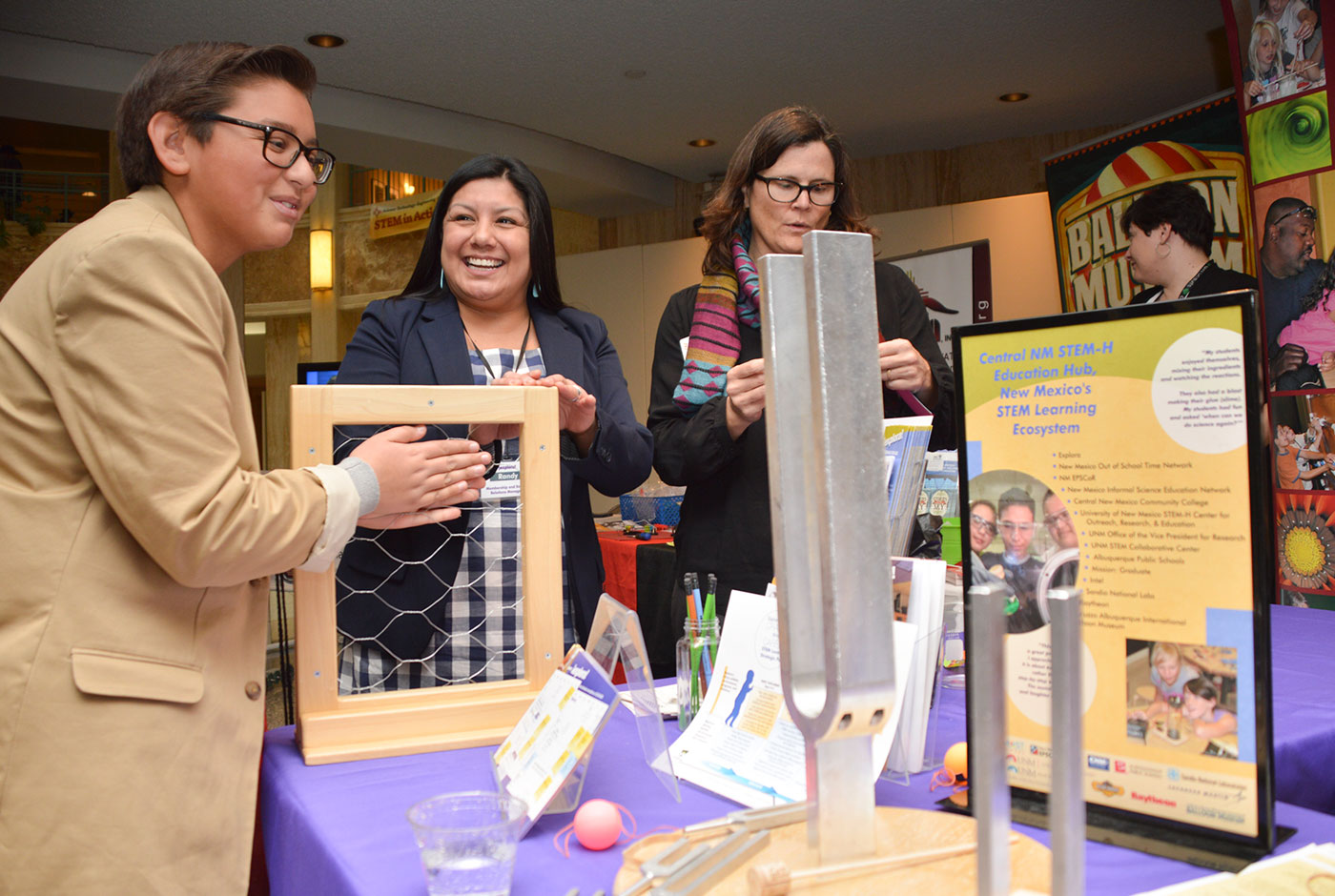STEM Education Day at the 2017 State Legislature
For the third year, LANL Foundation hosted STEM Education Day during the New Mexico Legislative Session on January 18, 2017.
Programs from throughout New Mexico were on display at the Roundhouse State Capitol in Santa Fe demonstrating science, technology, engineering, and math in action in formal and informal learning environments.
Exhibitors were:
Computer Science Teachers Association
Bradbury Science Museum
Española YMCA Teen Center Robotics
Explora
Girls in STEM/Los Alamos National Laboratory (LANL)
Inquiry Science Education Consortium (ISEC)
LANL Math & Science Academy (MSA)
LANL Super Computing Challenge
Math, Engineering, Science Achievement (MESA)
Math & Science Advisory Council (MSAC)
Math Circles
Natural History Museum
Northern New Mexico College STEM Mentor Collective
Rio Arriba County 4-H
Santa Fe Botanical Garden
University of New Mexico STEM-H
Hands-on activities and resources included college prep for STEM careers, computer programming and modeling, 3D printing, museum displays, inquiry STEM curriculum, experiential learning techniques and materials, robotics, teacher professional development, and youth mentoring.
In addition to displaying the diversity of successful STEM programs, exhibitors were also there to advocate for STEM education and quality curriculum. Several of the organizations actively supported House Bill 211 that recommended the adoption of Next Generation Science Standards.
Current science education standards have been in place since 1996 and are extremely outdated. In the last 20 years, major advances have been seen in STEM research, innovation, communication, brain science, assistive technology, and our understanding of how students learn.
The rigorous NGSS academic standards would not only support student learning of core STEM concepts including current science content and engineering, but also develop skills such as collaboration, critical thinking, and communication. High-quality curriculum and state standards would also promote STEM careers that support economic development opportunities.
